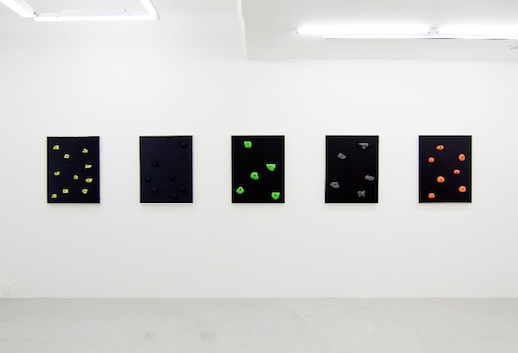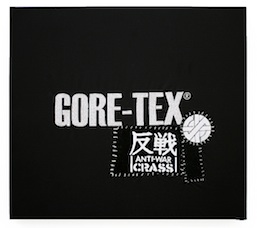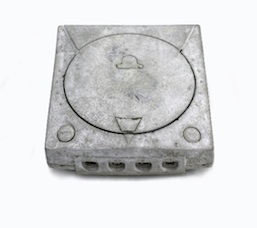Appropriated Autonomy
There are a number amongst us, myself included, who upon the outset of any [mis]adventure will drool for hours over the various, flashy bits of kit we might require. And nowhere is this sentiment more acutely felt than when good urban consumers prepare to meet the great outdoors. Faced with any excursion of this sort, it is not long their imaginations are beset by visions of luminous nylon tents, hi-tech garments and gratuitous gadgetry, demand for which has given rise to an entire ‘survival’ industry. For today’s aspirant explorer, the yearning for nature is ideally expressed through an itinerary of expensive barriers between they and it. With the promise of freedom outside the city-limits loaded with an often hefty price-tag.
Admittedly, I am guilty here of some exaggeration. Yet the account above does bring us quickly to a proposition at the center of Oliver Payne’s current “Exhibition of New Works”: That in the context of a consumer society, our demand for an authentic outdoor experience is rife with contradiction. For those familiar with the British artist’s existing oeuvre, this subject matter may come across as quite surprising. Until now, Payne has chiefly concerned himself with the aesthetics and effects of digital media; a topic which, superficially at least, reads as an anathema to all things outdoor. Yet if we examine the show carefully, we find that the artist has not so much abandoned his earlier pursuits, but rather expanded the media-constructed worldview they explored into unfamiliar territory.

Our first clue as to how such a worldview might assert itself upon our sense of the natural world comes in the form of ‘Untitled (Basic Gear)’. Consisting of a page torn straight from a glossy magazine and affixed to the wall, the piece shows us a selection of desirable camping equipment described therein as the bare essentials for any outdoor adventure. Belonging to a set of five, the piece is flanked by other pages of a similar theme. Some show trendy models decked out in the latest explorer-chic, others the romanticised landscapes to where they might set off. Taken together, we recognise in these images both our conventional idea of ‘the great outdoors’ as a site of attainable freedom, and the contradictory ease with which that idea can be thoroughly commodified.
In addition to this message however, another voice — one of dissent — has been introduced in the form of slogans and iconography from the Seventies protest-punk group Crass. Scrawled over every page, the rhetoric of the band counterpoints the commercial freedom our magazines offer with the anarchistic individualism of punk. The dynamic tension between these two different conceptions of autonomy is played out over much of the exhibition, with the band’s insignia and other punk signifiers haunting a number of its works. In ‘Untitled (Mattress)’ for instance, a portable roll of foam bedding is decorated with a ring of large metallic spikes. And in another ‘Untitled’ set of works, we find home-made Crass patches stitched onto pieces of protective GORE-TEX fabric.


In all three of these exhibits, Payne is quick to demonstrate the packaging and sale of our desire for autonomy outdoors. That the fierce, individualist messages extolled by Crass drive such a point home is difficult to deny, yet there is more to this exhibition than a simple game of opposites. Compromised by their being taken out of context, the radical quality of punk’s mantras seem somehow hollow. And given that we now identify the genre with its clothes more than its views, the political declarations on display here end up reading suspiciously like fashion statements. Leaving us with a sense that either when setting off on some idealised expedition, or signing up to the doctrines of punk — an appropriated autonomy isn’t really autonomous at all.
Barnaby Lambert
Barnaby Lambert



